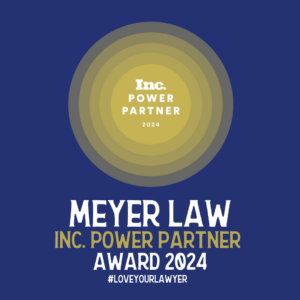(This is the third part of a six part series. The first part can be found here.)
In this third part of our series on the five things you need to do when starting a business, we are going to look at how to protect your confidential information.
Confidential information is any information relating to your new business venture that is not available to the public or in the public domain. Your business idea, business plans, contact lists, trade secrets, financial data, technical and commercial data, and other intellectual property are all examples of confidential information.
A common misconception is that a new product or service idea is automatically protected as soon as it springs forth from a person’s mind. Unfortunately, as way too many have learned, this is not true. Ideas, by themselves, are not protected automatically. Even familiar forms of intellectual property protection – patent, trademark, copyright – do not protect ideas, only the tangible expression of ideas.
To protect your confidential information and idea, you must make sure that every person you discuss your business idea with signs a confidentiality agreement, also known as a non-disclosure agreement (NDA). Without this critical protection in place, someone could beat you to the punch, take your idea to market, and make tons of money, without you having any legal recourse. Don’t let this happen to you! Having a proper NDA in place is essential before you discuss your new business with anyone.
Your NDA needs to be tailored to your specific business. You should have two NDA versions – one to be used when you are disclosing your information to another party, and another to be used when there is an information exchange between both parties.
A properly drafted NDA should clearly define the information being shared, the nature of the business relationship and reason for sharing information, and restrictions on how the information can be used. An NDA should also define the length of the confidentiality obligation term, and include a provision that any and all confidential information needs to be returned to you once the business relationship ends.
As mentioned in our first segment of this series, some people are uncomfortable asking another person to sign an NDA. There is concern that the person would be offended, especially someone they know well. Let’s be clear, we are talking business here. An NDA sets expectations and emphasizes the importance of keeping your information under wraps. Any reasonable person will understand your desire to protect your confidential information and important new business idea. Trust your instincts, and certainly think twice before sharing information with someone who does not want to sign your NDA.
Having a well-drafted NDA in place before sharing your confidential information is a crucial step when starting a new business. It needs to fit your specific business, and provide an appropriate level of protection. The way your agreement is written could make or break its standing in a court of law. This is not a do-it-yourself project.
A good business attorney will make sure your NDA is solid, covers all the bases, and holds up in court if you need to take legal action for breach of contract. If you need help creating an NDA, or have questions about how to protect your confidential information, please reach out to us. We are always here to help!

Tricia Meyer is Founder + Managing Attorney of Meyer Law, one of the fastest growing law firms in the United States. Meyer helps entrepreneurs and technology companies from startups to large corporations with day-to-day matters and notable clients include companies that have appeared on Shark Tank to companies gracing the Inc. 500 to some of the largest companies in the world.
Tricia has been named on the Forbes Next 1000 list, is one of the Most Influential Female Lawyers in Chicago according to Crain’s Chicago Business and been recognized as a top 10 technology lawyer.
As an entrepreneur and a lawyer, Meyer has a unique perspective and has mentored thousands of startups and scaling companies at tech incubators and accelerators across the United States such as 1871, WeWork Labs and Techstars. Tricia has been featured in Inc., Crain’s, Chicago Tribune, NBC Chicago, American Express OPEN Forum, and more. Learn more at www.MeetMeyerLaw.com and follow Meyer Law’s story on Instagram @loveyourlawyer.





